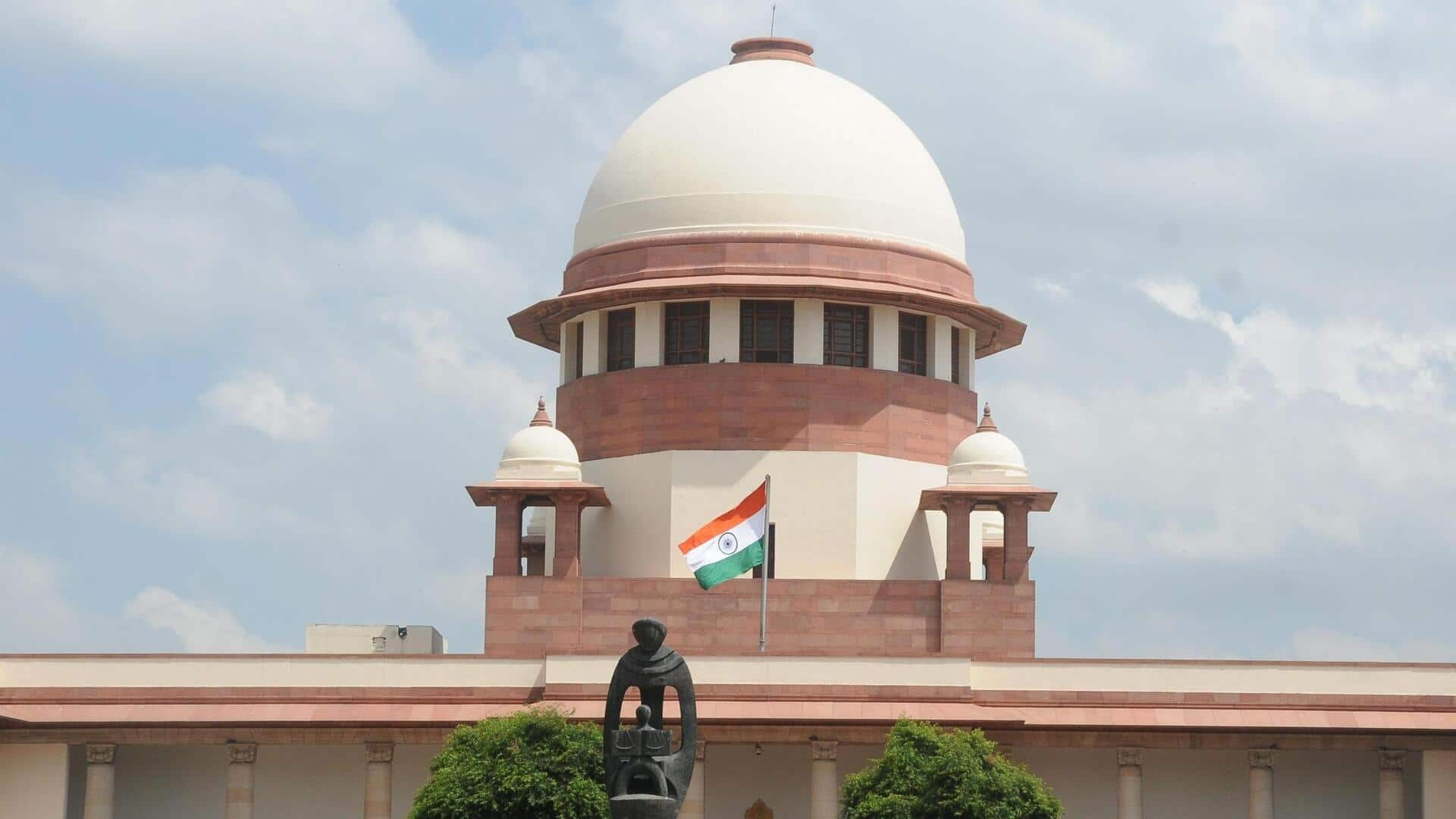
SC slams Delhi residents for illegally occupying 15th-century tomb
What's the story
The Supreme Court has pulled up Defence Colony Welfare Association (DCWA) for illegally occupying and modifying the 15th-century tomb of Shaikh Ali in Delhi.
The court was furious and said, "You've been occupying that place and running your little fiefdom sitting in the air-conditioned office. And not even paying rent."
The Central Bureau of Investigation (CBI) had found DCWA had made several unauthorized changes to this historic structure, including bricking up original stones and repainting walls.
Tomb modifications
Unauthorized alterations and weak justifications
Reports said, the DCWA had also installed modern amenities like electricity, plumbing, and a contemporary lavatory block without legal permission.
When confronted, the association argued their occupation prevented misuse by criminal elements.
However, this justification was dismissed by the court as "foolly."
The bench led by Justice Sudhanshu Dhulia and Justice Ahsanuddin Amanullah questioned both DCWA's actions and Archaeological Survey of India's (ASI) inaction in protecting the monument.
ASI inaction
Court criticizes ASI's failure to protect monument
The Supreme Court also slammed the ASI for not protecting the tomb.
The ASI had first recommended declaring the tomb a protected monument in 2004 but changed its decision in 2008 after the DCWA made alterations.
The court has now directed the CBI to investigate how and why these decisions were taken, questioning ASI's change in stance.
Public petition
Case brought to attention by Delhi resident
The case was brought to the court's attention by Delhi's Defence Colony resident Rajiv Suri.
Suri had petitioned for the tomb to be declared a protected monument after his plea was dismissed by the Delhi High Court in 2019.
The Supreme Court has now scheduled further hearings for January 21, 2025. It also plans to appoint an archeological expert to assess damage and suggest restoration measures for the tomb.
Political involvement
CBI report suggests political influence in tomb occupation
The CBI report also hinted at possible political influence in letting DCWA continue to occupy the tomb.
It mentioned the involvement of a former Union Minister, something which the court admitted had far-reaching consequences.
The court compared DCWA's justification of their actions to that of colonial rulers' arguments and expressed strong disapproval of their conduct.